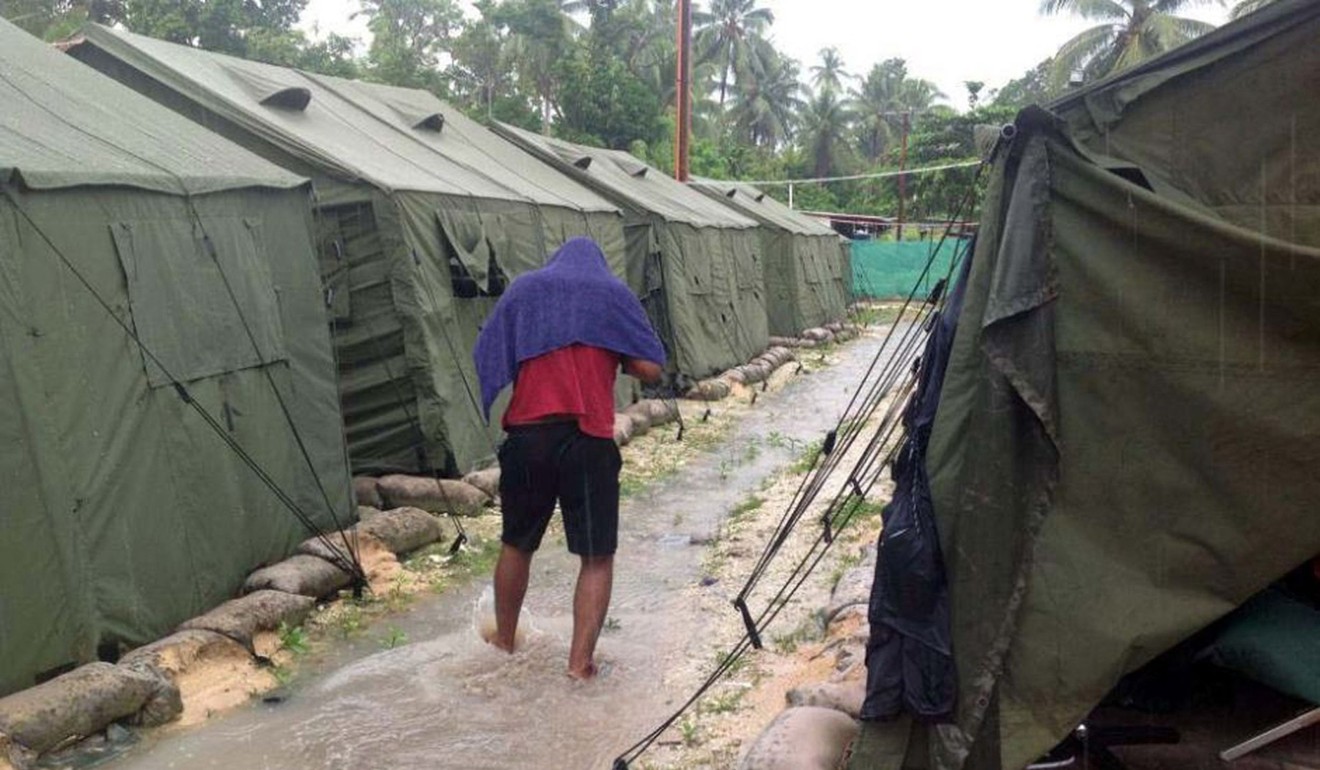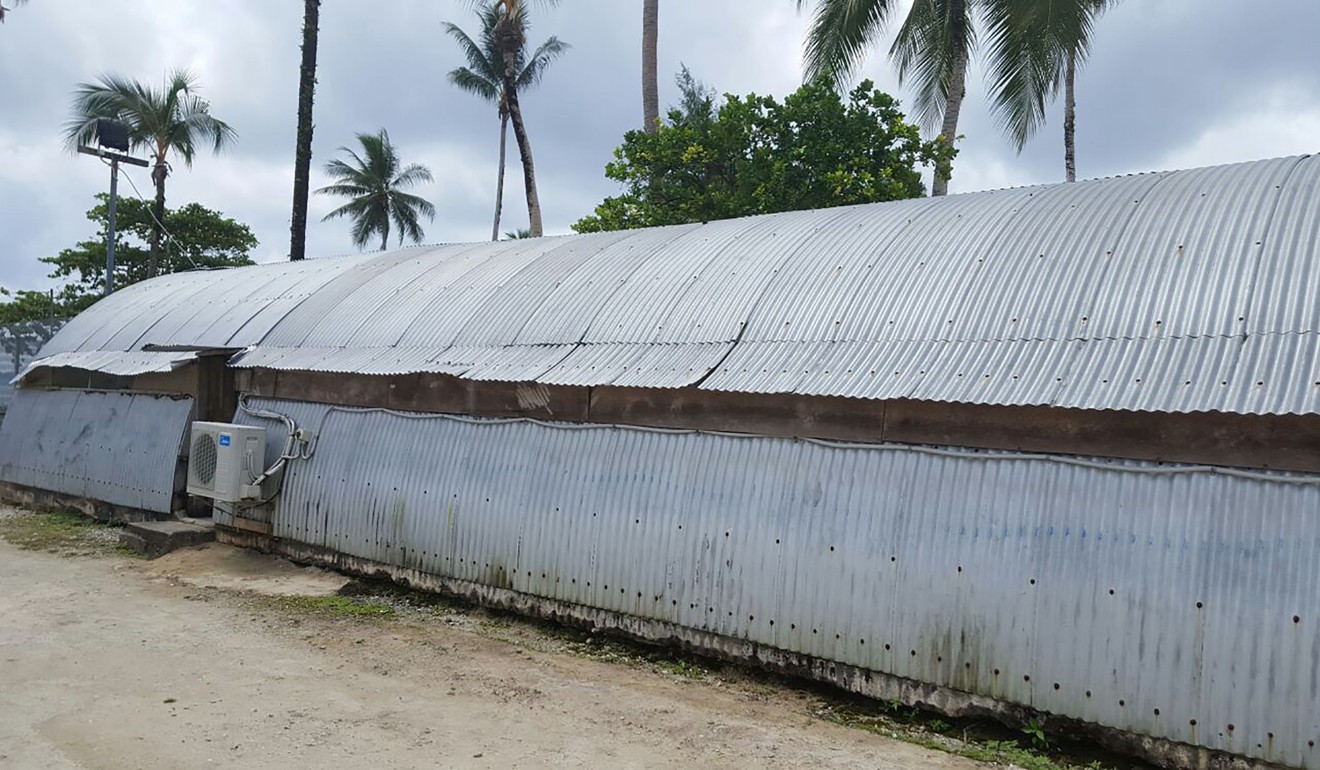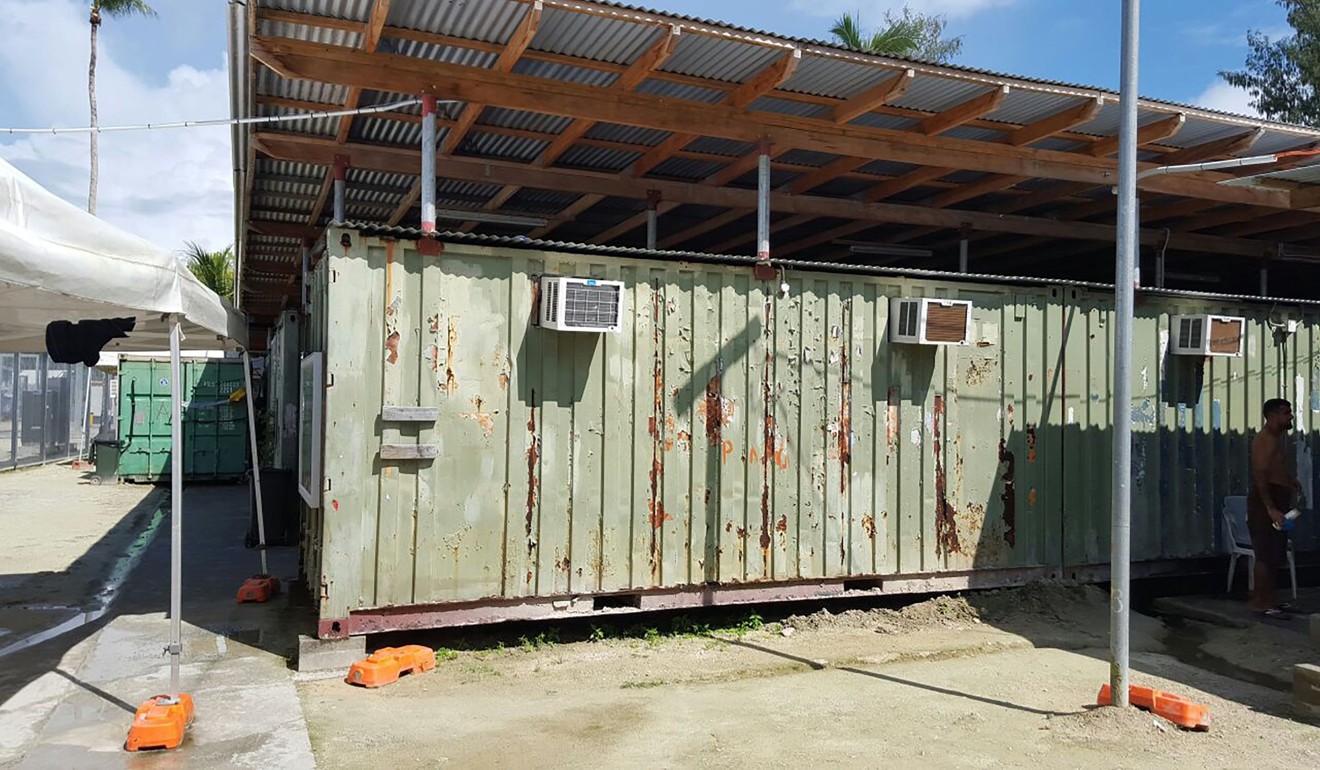
Australia must act to stop ‘humanitarian emergency’ in Manus, says UNHCR
Immigration processing facility on Manus island expected to close on October 31, with government saying local authorities will forcefully deport any non-refugees who refuse to return to their home countries willingly
Australia must step in to prevent a “looming humanitarian emergency” in Papua New Guinea because of the abrupt closure of its immigration processing centre on Manus island, the UN high commissioner for refugees said.
The organisation said it had profound concerns about the “mounting risk” associated with offshore processing and the “extraordinary human toll” it was taking.
The centre is expected to close on October 31, with federal minister Michaelia Cash has saying PNG authorities will forcefully deport any non-refugees who refuse to return to their home countries willingly.
Cash would not rule out cutting off water and electricity services or using force to move refugees into alternative accommodation.
Authorities have tried various means to move all detainees into alternative accommodation as they gradually close the centre, more than four years after it was reopened by the former Labour government.

“Having created the present crisis, to now abandon the same acutely vulnerable human beings would be unconscionable,” said Thomas Albrecht, UNHCR’s regional representative in Canberra.
Legally and morally, Australia cannot walk away from all those it has forcibly transferred to Papua New Guinea and Nauru
“Legally and morally, Australia cannot walk away from all those it has forcibly transferred to Papua New Guinea and Nauru.”
The UNHCR called on the Australian government, which it said had obligations to people who sought its protection, to provide long-term adequate care to prevent a humanitarian emergency. It was “gravely concerned” sufficient expertise was not being maintained in the handover of service and welfare provision.
“As of today, there is no clear planning for new contracts to even begin.”
The UNHCR said its recent missions to the centre in April and September amplified their concerns for the health and well being of asylum seekers and refugees. Two people have taken their own lives in the past two months.
“A lack of proper planning for the closure of existing facilities, insufficient consultation with the Papua New Guinean community, and the absence of long-term solutions for those not included in the relocation arrangement to the United States, has increased an already critical risk of instability and harm.”


Torture and trauma services have ceased and there is continuing concern over the lack of psychiatric services in PNG. Medical care, historically provided by IHMS within the centre, is also being withdrawn. PNG’s health system is reportedly in a state of crisis, with medication shortages across the country, including in Manus province.
Professor Louise Newman, spokeswoman for the Asylum Seekers Advocacy Group, said the health and mental health situation was already in crisis, noting reports from detainees that some were being given a month’s worth of medication ahead of the closure.
“There is heightened tension there at the moment, reports of people whose mental health is deteriorating, and we have had a couple of deaths thought to be suicides,” Newman said.
“It’s a very volatile environment so from a mental health perspective this is a very risky strategy.”
Most of the 900 men are expected to be housed in two transit centres in East Lorengau, and non-refugees are expected to return to their countries of origin.
Several dozen have been transferred to Port Moresby, in some instances for medical care.
Refugees were last week offered the chance to move to Nauru and continue their applications for US resettlement.
However, many have refused to move from the centre, citing fears for their safety living in the PNG community. Some, whose claims for protection have been denied, simply refused to return home, while others declined to take part in the refugee process entirely.
Refugees have been threatened with arrest and forced to live in compounds with basic services cut off around them.
Ben Wamoi, a Lorengau resident and co-founder of the Manus Alliance Against Human Rights Abuses, said island residents were concerned about the closure of the centre and the transfer of people into the community.
“The government has no idea long-term about the relocation of these people,” said Wamoi. “I’ve asked the local government … to come down and address the issues about whatever social impact will arise if the asylum seekers are moved there.”
Wamoi said community members were planning protests to advocate for the asylum seekers and refugees and called on the Australian government to assist the asylum seekers and refugees.
“The Australians have forgotten about them, they have abandoned them. The government must be responsible,” he said.

